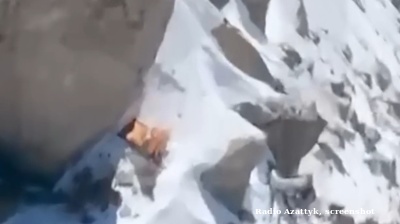Seventeen international press freedom organisations have issued a joint statement expressing "deep alarm" at what they describe as an accelerated deterioration of press freedom in El Salvador, with at least 40 journalists forced to flee the country in recent weeks.
The Association of Journalists of El Salvador (APES) documented the departures, which it attributed to "a sustained pattern of harassment, intimidation, and arbitrary restrictions on journalistic work," according to the statement released on June 18.
The journalists who have left the country come from various media outlets and had conducted investigations into human rights abuses, corruption, and government transparency issues, the organisations said. The exodus has "triggered a profound crisis of freedom of expression and created a climate of widespread fear," affecting even the families of exiled journalists.
APES has raised concerns about alleged watchlists and threats of arrest targeting journalists and human rights defenders, including those from the investigative outlet El Faro, the statement said.
The situation has been compounded by the recent passage of El Salvador's Foreign Agents Law, which the organisations described as posing "a direct threat to press freedom and the work of independent organisations." The legislation "imposes severe restrictions and could be used as a tool of persecution against those who practice journalism or defend fundamental rights," they warned.
Recent fact-finding missions by international press freedom organisations concluded that El Salvador is experiencing "one of its darkest moments for press freedom since the end of the armed conflict," characterised by high levels of self-censorship and forced exile.
The signatories, which include the Committee to Protect Journalists, Reporters Without Borders, and the Inter American Press Association, called on the Salvadoran government to "guarantee the physical integrity and freedom of all journalists and immediately cease any form of persecution, surveillance, or intimidation."
They demanded that the Salvadoran state "publicly clarify reports of watchlists and threats of arrests and to ensure that critical voices are not being criminalised."
The organisations also called for security guarantees to allow journalists who have been forced to flee to return without fear of persecution or legal action.
"The international community is closely monitoring the situation and demands the unrestricted respect for freedom of the press and expression in El Salvador," the statement said.
The joint statement was signed by 17 organisations from across the Americas and Europe, including regional press associations from Mexico, Colombia, Argentina, Chile, Brazil, and Peru, as well as global bodies such as the World Association of News Publishers and PEN International.
The media freedom deterioration has unfolded under President Nayib Bukele, who won re-election in February 2024 despite constitutional questions over consecutive terms.
"I don't care if they call me a dictator. I'd rather be called a dictator than see Salvadorans killed in the streets," Bukele publicly stated earlier this month. The 44-year-old flamboyant president, a darling of US President Donald Trump who was first elected in 2019 and returned to office in a landslide last year, accused NGOs of defending criminals and suggested the press was participating in an "organised attack" led by international groups. Since then, his administration has tightened regulations on NGOs’ activities following a playbook seen in some Eastern European countries such as Russia and Georgia, which have adopted controversial "foreign agents laws."
Bukele's second term has been marked by closer cooperation with the Trump administration on deportations and what critics characterise as increasing pressure on human rights. Under emergency laws bypassing judicial review, El Salvador has accepted over 200 migrants, mostly Venezuelans and some Salvadorans, deported from the United States since March, with many housed at the Cecot megaprison on allegations of links to criminal organisations, including MS-13 and Tren de Aragua.
Bukele has gained popularity for his successful crackdown on gang violence through a state of emergency declared in 2022, but has faced growing criticism from human rights groups over perceived authoritarian tendencies and restrictions on civil liberties.
News

Russia orders emergency operation in race to save mountaineer trapped on Kyrgyzstan’s highest peak
Top official responds to desperate appeal from climber Natalia Nagovitsyna’s son who believes she is still alive.
_1756222537.jpg)
End of Bolivia's leftist era leaves Chinese and Russian lithium deals in limbo
Bolivia’s October presidential run-off has become a contest not only between two political traditions but also over the management of the country’s vast but underdeveloped lithium resources.

UPDATED: Kosovo gets parliament speaker but months-long political stalemate persists
Prolonged political deadlock had prevented Kosovo's assembly from functioning and blocked the formation of new state institutions since the February general election.

Turkey’s “fast lane” transport minister hit with motorway speeding ticket
Abdulkadir Uraloglu posted video of himself driving at 225 km/h, with clip set to folk music and Erdogan speeches on infrastructure.




